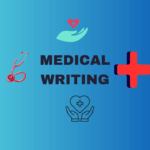Q: Can you clarify some basic concepts related to the research process?
I am a beginner and need to know how to conduct research. In particular, I would like to know about the following aspects of research: background of the study, statement of the problem, objective of the study, scope of the study, significance of the study, limitation of the study, research methodology, research design, source and type of data, sampling technique, sample determination, data collection method and data analysis.
A valid and timely academic research requires deep understanding of the study subject and good knowledge of research methodology. The thoroughness of a research is absolutely required for all fields of study, but the details of research including study design depends on the field of study and the specific research question.
Here is a brief explanation of each of the aspects you wish to know about:
Research topic and question: In general, research in every field starts with determining the research topic and question. Usually the topic is decided to address a specific gap in the existing knowledge base or to satisfy the intellectual curiosity of the researcher. A clear problem statement stems out from an exhaustive and systematic background research and it will serve the basis of subsequent research steps.
Literature search: Once the topic is decided, a thorough literature search on the topic is required. Internet based search using relevant keywords is the most popular and effective search process.
Scope, objective, and significance of the study: Scope of the study will define the broad coverage of your research while the objective of the study is answering the specific research question. Significance of the study defines the impact of your research on the specialized as well as broad target groups.
Research methodology: If the research is primary in nature, you may have to conduct experiments and collect data. For secondary research, data from already existing research work should be collated and summarized. For each type of research, there are defined methods. Overall, the methods include theoretical understandings, experimental studies, statistical approaches, etc. Research methodology enables you plan and design the whole research process.
Data collection and analysis: Data collection is the process of systemic gathering of observation. Similar to methods, the appropriate way of data collection depends on your research question.
Study limitation: The study limitations can be defined as those gaps in the design or methodology that affected the interpretation of results from the research work. They are the restrictions on the application or practice of the results of the work that happened because of the way in which you chose to conduct the research.
Related reading:
- How to choose a research question
- The basics of writing a statement of the problem for your research proposal
- How to conduct an effective literature search and keep up with new publications
- How to write the background of a scientific study?
- How to write a problem statement for my research?
- What should I write in the "Research methodology" chapter of my thesis?


